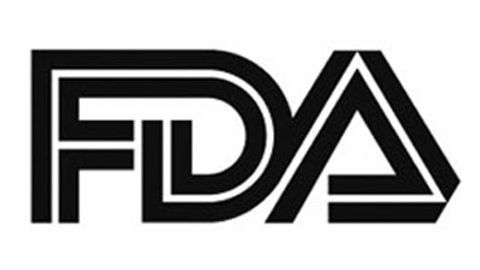FDA Lifts Partial Clinical from Study of RVU120 in Relapsed/Refractory AML and MDS
The FDA has lifted its partial clinical hold on a phase 1B study of RVU120, which is an investigation of the agent for the treatment of patients with relapsed or refractory acute myeloid leukemia and high-risk myelodysplastic syndrome.

The FDA has lifted its partial clinical hold on a first-in-human phase 1B study of RVU120, which is an investigation of the agent for the treatment of patients with relapsed or refractory acute myeloid leukemia (AML) and high-risk myelodysplastic syndrome, according to a press release by Ryvu Therapeutics.1
The hold was originally placed on the study due to a safety concern after a patient's death. Enrollment to the study was, but the study investigators were permitted to continue treating patients who were already enrolled. The FDA requested a protocol amendment that impacted the study’s exclusion criteria, as well as the scope of monitoring and how often laboratory testing was performed.
"We are thankful to FDA for working with us in a swift and interactive manner to review the data from the trial and introduce modifications to the study protocol. We believe that the initially demonstrated benefit of treatment with RVU120 as a single agent for AML and MDS patients, coupled with the amended study protocol will lead to a safe, timely, and successful completion of the clinical trial. We will be working closely with the investigators and the clinical sites to obtain IRBs' approvals on the revised protocol and resume patient enrollment in Q3 2021" – said Pawel Przewiezlikowski, Chief Executive Officer of Ryvu.
Treatment of the patients with R/R AML or high-risk MDS receiving 75 mg of RVU120 in cohorts 1 to 4 of the study was completed, and the safety data warrant dose-escalation with 75 mg as the starting dose of the agent. These data, which were presented during the 2021 European Hematology Association Congress allowed the removal of the partial clinical hold.
The key end point of the study was to determine the preliminary safety profile, dose-limiting toxicities (DLTs), maximum-tolerated dose (MTD), and the recommended phase 2 dose (RP2D) of RVU120 in approximately 68 patients with R/R AML or high-risk MDS. The study follows a 3 + 3 design, and the data were assessed by a data review committee. Adverse events (AEs) observed during the study were assessed according to the National Cancer Institute’s Common Terminology Criteria for Adverse Events v5.0. Investigators also evaluated disease during the study using the Dohner 2017 response criteria for the patients with AML and the Cheson 2006 response criteria for the patients with MDS.2
Patients who were treated during the safety analysis had a median age of 74 years and a median of 3 prior lines of therapy. Three of the patients had R/R AML, and 1 had high-risk MDS. The results showed no DLTs with RVU120, and the 4 serious AEs observed was considered unlikely related to the study drug, per the investigators. The serious AEs included pseudomonas sepsis, urinary tract infection, febrile neutropenia, and lung infection.
In cycle 1, there was 1 patient who was treated with RVU120 10 mg in cohort 1 who achieved stable disease on treatment. Another patient who received 25 mg of the agent in cohort 2 had progressive disease.
In cohort 3, an 81-yearr-old man with high-risk MDS who received a starting dose of 50 mg, had a response to therapy, and the patient’s dose was escalated to the cohort 4 dose of 75 mg.
Finally, in cohort 4, the was a 62-year-old man with persistent AML extramedullary skin leukemia who failed on the prior combination of venetoclax (Venclexta) achieved a complete hematological recovery during cycle 2. The patient also showed an absence of bone marrow blasts and continuous improvement of skin leukemia.
The study of RVU120 is ongoing and actively recruiting patients. To enroll, patients are required to be 19 years of age or older with an ECOG performance status of 0 to 2, a life expectancy of at least 12 weeks, and adequate laboratory values and cardiac function at screening. All patients must have been off of anti-cancer therapy for at least 2 weeks prior to starting treatment on the study. Patients must have also recovered from any toxicities above a grade 1 in severity.
References:
1. FDA lifts partial clinical hold on phase ib clinical trial of rvu120 (sel120) in acute myeloid leukemia and myelodysplastic syndrome. News release. Ryvu Therapeutics. July 14, 2021. Accessed July 15, 2021. https://prn.to/3B9HuMg
2. Angelosanto N, Abboud C, Borthakur G, et al. CLI120-001 phase1b study of SEL120/RVU120 in patients with aml or high risk mds: preliminary clinical and pk results from initial dose escalation cohorts. Presented at: 2021 European Hematologic Association Congress; Virtual. June 9-17, 2021. Abstract EP480.